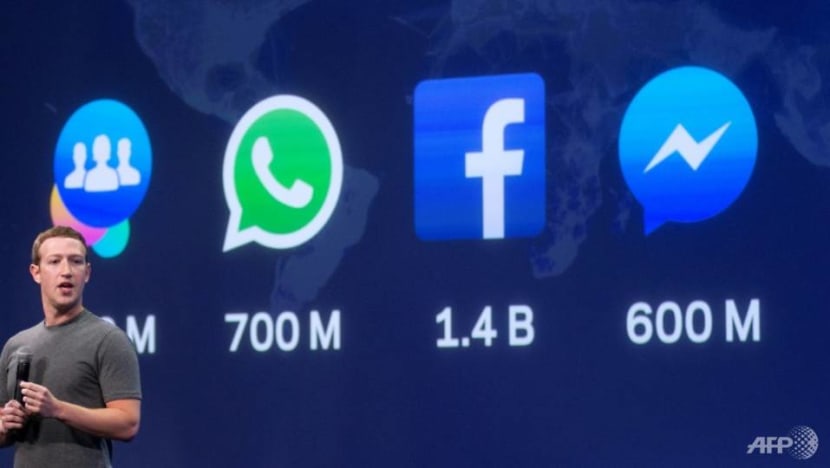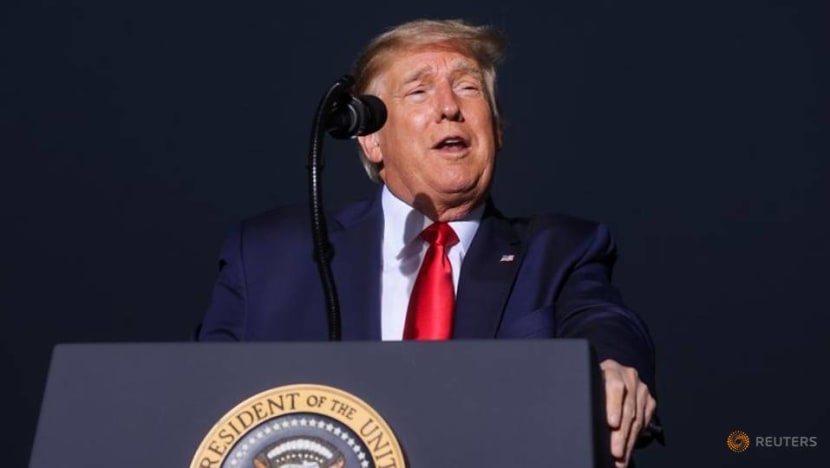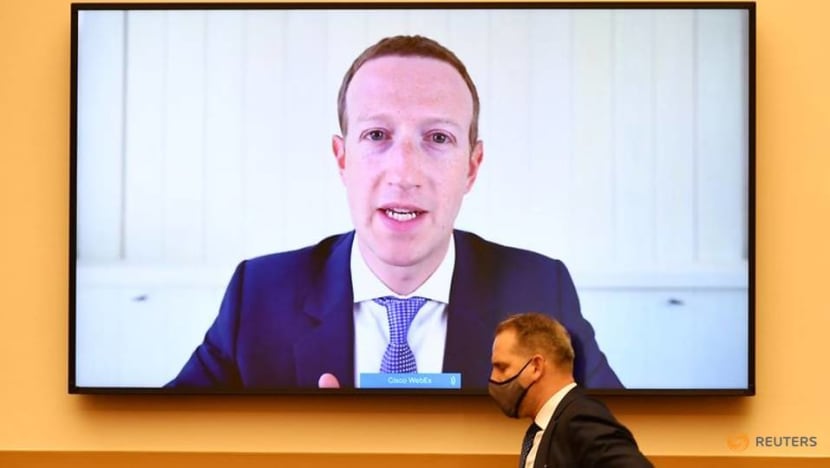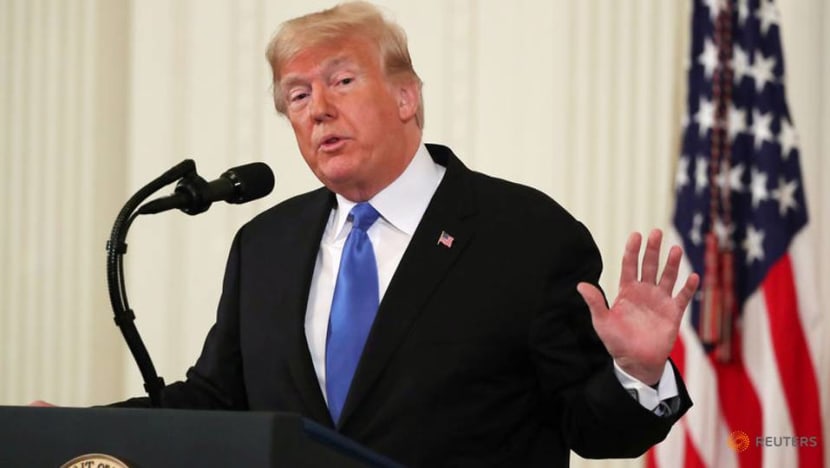commentary Commentary
Commentary: Facebook’s safeguards for the US election are the right move
But its platforms’ new steps against election interference are unlikely to satisfy critics, says NTU’s Mark Cenite.

The world's biggest social network first began looking into its influence on elections after revelations of Russian influence campaigns during the 2016 US election AFP/Josh Edelson
SINGAPORE: They say that generals always fight the last war.
Facebook has had four years to safeguard its platforms against the circulation of falsehoods, some from foreign sources, that plagued the 2016 US election campaign.
Indeed, earlier this month, Facebook removed fake accounts and pages associated with the Internet Research Agency, a Russian operation indicted for interference in the 2016 election.
On Sep 3, Facebook founder and CEO Mark Zuckerberg announced new measures to demote stories in our news feeds that users or third-party fact-checkers deem false. With the election less than two months away, such steps are welcome, however belated.
Though Facebook refuses to fact-check political ads because it says it’s not the arbiter of political truth, it announced that it won't accept new ads in the week before the election.
This reasonable step seems analogous to Singapore’s cooling off day.
Facebook is also preparing for new threats, though its efforts may not be enough to prevent its platforms from being drawn into post-election chaos.
THE NEW BATTLE: THE DAY AFTER ELECTION DAY
This year, to counter risks of voting in person during the pandemic, an unprecedented number of voters will cast mail-in ballots. US President Donald Trump says this will lead to massive fraud.
READ: Commentary: Donald Trump aims to win the US election, one way or another
On Nov 4, the day after election day, if Trump and others are questioning the legitimacy of the results, few will be surprised.
Commentators have been warning of it for months.
Zuckerberg has even warned of “violence or civil unrest in the wake of this election”.
All evidence suggests that voter fraud of any kind is extremely rare. So far, mail-in balloting has been secure.

In the 2016 election, almost a quarter of votes were cast by mail. A Washington Post analysis of 14.6 million ballots cast that year in states that conduct all voting by mail found just 372 possible cases of double voting or voting on behalf of a dead person. The conservative Heritage Foundation’s study also found little fraud.
Any candidate could sow discord with attempts to impugn election integrity, but the one with the loudest voice already has a head start.
At the Republican National Convention in August, the President said: “The only way they can take this election away from us is if this is a rigged election”. Since April 2020, he has regularly linked mail-in voting to fraud in Facebook and Twitter posts.
Trump has a longer history of questioning elections.
In 2016, when his rival Senator Ted Cruz won the Iowa caucuses, an early step in the race for his party’s nomination for president, Trump said it was because Cruz cheated.
Though Trump won in 2016 through an electoral college victory, he lost the popular vote. He said, without evidence, that was because of millions of illegal votes for Hillary Clinton — by non-citizens or those voting twice.
He famously said that he would accept the results of the 2016 election — if he won. When asked similar questions about 2020, he has said he would “have to see”.
Trump cried foul during vote counts that took longer than usual in Florida and Arizona in 2018 and in the 2020 New York primaries.
READ: Commentary: America needs a government without the drama or disaster
With Trump currently trailing in the polls, many predict he will attempt to discredit the results if he or his allies lose.
How will Facebook respond to any candidate’s attempts to discredit the outcome?
Its actions so far give an indication.
In July, Trump posted: “Mail-In Voting, unless changed by the courts, will lead to the most CORRUPT ELECTION in our Nation’s History!” Facebook appended a label linking to US government voting information pages.
At the time, critics, including Facebook employees, were demanding the removal of misleading and inflammatory posts.
In the Sep 3 post, Zuckerberg announced that Facebook would label posts that claim that "lawful methods of voting will lead to fraud".
Hours later, Trump posted that voters should mail in their ballots, then go the polls to check to see if they were received. If not, he said they should vote again.

Voting twice is a felony, so the legality of following this advice is questionable.
Facebook first tagged that post with a standard label linking to its voter information pages, one which it had begun applying to many election-related posts.
Amidst its employees’ demands to remove the post, Facebook amended the label to read: "Voting by mail has a long history of trustworthiness in the US and the same is predicted this year".
Trump often cross-posts the same content to Facebook and Twitter. Twitter put a label on the corresponding tweet saying it violated its rules but “it may be in the public’s interest” for it to stay up.
READ: Commentary: A softer Donald Trump could win the US election
On Sep 12, Facebook put the same label about the trustworthiness of mail-in voting on a Trump post saying it leads to “disaster”.
Should posts discrediting postal voting, without evidence, be removed?
On the contrary, because of what they reveal about the speaker, unverified claims must remain up. Such posts are newsworthy. They help voters evaluate their source.
Adding context with labels is the most a social network can justify doing.
PREMATURE VICTORY DECLARATIONS
Election results are only official when state officials certify them days or weeks later.
However, Americans can usually be confident of the results on election night, when precincts announce vote tallies and news media project the winners.
Under some states’ laws, mailed-in ballots cannot be counted until election day, so observers have been predicting for months that accurate election night projections will be impossible this year.
Americans may have to endure an election week or election month before winners are known.
Zuckerberg told the New York Times its platforms would attempt to educate voters that nothing is wrong with such scenarios.
Surveys show that far more Democrats than Republicans intend to vote by mail.
Some predict a “red mirage”: Partial tallies on election night, mostly of in-person votes, may show Republicans in the lead. A “blue shift” may follow: When all ballots are counted, Democrats who were trailing may win.
As the numbers change, some may cry foul.
Facebook says it will flag any premature announcements of victory with labels saying that official results are not in yet.

Its default remedy for problematic posts — to label them with more information — will no doubt lead to objections that it should remove them.
Again, calls to remove such posts are short-sighted. In an open society, citizens need to know if candidates are attempting, in some voters’ eyes, to steal the election.
Besides, even if a social media platform took down a candidate's victory post, the candidate could claim victory in a press conference.
READ: Commentary: This call to break up Big Tech is rather misguided
A week after Facebook announced its new policies, Twitter said it would label or remove unverified claims of election rigging or premature victory.
Censoring the candidates is not the answer. We need to hear about their stratagems — especially when they attempt to mislead — in their own words, now and after the election.
Dr Mark Cenite is Associate Dean (Undergraduate Education) at Nanyang Technological University’s College of Humanities, Arts, & Social Sciences. He teaches communication law at the Wee Kim Wee School of Communication & Information.












